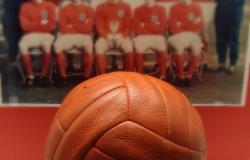Memories of my World Cups

My first World Cup was the one in Chile in 1962. In those days, there were no satellites to beam the picture directly from South America to Europe so the live games were listened on small transistor radios that you would grab in your hands, ever more tightly as the attack seemed more dangerous. My one big memory: the Yugoslavia-Chile game for the third place. I went with my family to dinner and we carried the radio. It turned out that everybody else did the same. And then a huge silence that enveloped the restaurant when Chile scored the winning goal.
The World Cup then was not a very big affair. Few people travelled to Chile and some games were played in front of empty stadiums, with only a couple thousand of spectators. These were still football’s heroic days.
The first World Cup I watched live was 1966 England. My memories of that Cup are incredibly vivid. In June that year I got a viral pneumonia and spent a week in a hospital. I was so keen to get out of the hospital on time for the World Cup. Luckily, I did and watched many of the games (in those days, not all the games were shown). Single memory. The brilliant Hungarian dismantlement of Brazil sans Pelé (3-1), and Varga’s incredible goal. These were the days when Hungary still displayed some of the Puskas era scintillance before it dropped into the footballing black hole, seemingly forever.
The 1970 World Cup was, I believe, the best ever. It was also the first World Cup I watched on a color TV. Technology was making big strides (just compare Chile 1962 and Mexico 1970). One special memory: rather conventionally, the semi-final slugfest between Italy and W. Germany that I watched alone (my parents having decided it was too late and gone to bed).
The 1974 Cup was held in West Germany. The quality of the games was still outstanding, mostly thanks to the great Dutch team. A memory: a quasi waterpolo match played by West Germany and Poland on an inundated field.
For the 1978 World Cup, I was in the United States where soccer was an exotic sport. No games were shown on national TV: no games, period. So I would read the results of the previous day's games in the newspapers. But since I watched all finals since 1966, I could not miss this one: I travelled three hours by car to Gainesville, Florida where in a movie theater with an audience about equally divided between the Argentinian and Dutch fans, I watched the final. People climbed the chairs and jumped across the aisles
The 1982 World Cup found me traveling. I was in Cameroon when Cameroon tied Italy 1-1. The World Bank arranged a high level meeting exactly at the time of the match. It was clear to all, except to the leader of the World Bank team, that the Cameroonian counterparts were not interested in structural adjustment but in dribbles and shots. Suddenly, half-way through the meeting, the minister jumped and started yelling “le poteau, le poteau”. Cameroon failed to score.
By 1986, US television was showing all the games (notice again the tremendous progress over eight years). I remember being late for an important meeting because France-Brazil went into extra-time and then penalty kicks. But I just could not leave without knowing if Platini or Zico will play in the semis.
1990 was, I think, the worst World Cup ever. I remember rather badly attended games, and the Italian stadiums that, contrary to what happens now at the World Cups, were left in their fairly dilapidated state. Yugoslavia, which had an excellent team, was imploding. Slovenian Football Federation recalled its players before the World Cup began. A couple of team staggered after a tournament full of 0-0s, to the pathetic final, complete with fist fights, doubtful penalty, dubious ejection.
The 1994 World Cup was perhaps just slightly better in quality. The 1990s were not very good years for soccer in general. In a somewhat blasé way I did not care to watch the games played in Washington DC, but then as the tournament progressed I got excited. My former girlfriend very kindly helped me get three tickets for the final in Pasadena. (In those days, you still had to buy tickets on the spot and she bought them just a week before the final—when instead of Italy-Brazil, there was a possibility that we might watch Sweden-Bulgaria).
The French 1998 Cup was yet another, very modest, improvement in the level of the game. I spent that month travelling with my family across France and was surprised how little interest the World Cup elicited. It was hard to find restaurants that would show the games—except when France played. I watched the final after paying a sizeable amount of money to a FIFA official who got his ticket for free. He asked for even more money than what I had in my pocket but his wife convinced him not to press the price further.
The 2002 Cup was in Japan and South Korea. Now the whole world was watching. One big memory: when Cafu climbed to the top of the makeshift podium and in a flurry of confetti and with music blaring lifted the Cup. I thought a new pagan religion had overwhelmed the world and Cafu, Ronaldo o fenomeno and Rivaldo were its chief priests.
In 2006, we travelled through Germany. Unlike eight years ago in France, football was everywhere: in all bars, hotels, fan zones. I watched Germany-Sweden QF match in a beautiful hotel in Berchtesgaden. Perhaps because the hotel was expensive and the guests quiet or perhaps because of the place where it was built, German tourists who watched the game just politely applauded each German goal. It was almost like attending a chamber concert. But for other games and in other surroundings, the atmosphere was different.
I remember rather badly the 2010 World Cup. I watched the Uruguay-Ghana match with my son in an outdoor café in Belgrade. Suddenly the storm descended and the connection was lost. I insisted that the owner try several times to restore it. Eventually, he succeeded: we witnessed Suarez’s incredible save and Ghana’s unlucky penalty miss. It was the closest that an African team came to the semis.
The 2014 Cup in Brazil transformed the whole country. You had the feeling that had the nuclear war broken out, the news would be relegated to page 4 of the newspapers. Despite all the fears, the Cup was excellently organized—surpassing in some areas even German organization. I remember a beautiful starry night at Ipanema, dining in a terrace restaurant, with Henry and FIFA officials just a few tables away.
The 2018 so far looks great. The quality of the games has steadily risen: it is one of the better World Cups, I think, and we yet have to see the best.
I am very optimistic about the Qatar Cup. I am glad it will be played in an Arab country: Arabs love football and their teams are getting steadily better (and they were singularly unlucky this year). The Cup will be played in Winter when top players are less tired.
It has been a great ride of more than half century for me, and when we compare machines and organization used today as well as the global reach of the sport with how things looked in 1962, we can more easily grasp the role of both technology and globalization. Immense progress in both. But we also have to be modest in judging what was accomplished. We are proud that the Olympics and the World Cup have an almost unbroken record of respectively more and slightly less than a century. But Greek Olympics were held continuously for four centuries. Who will win the 2318 World Cup? Will countries compete? Or perhaps only Oceania, Eastasia and Eurasia? Will there still be football? Will the Cup be held at all? Qui sait.
This post was reposted with permission from Branko's blog.
Image credit: Ben Sutherland via Flickr (CC BY 2.0)


